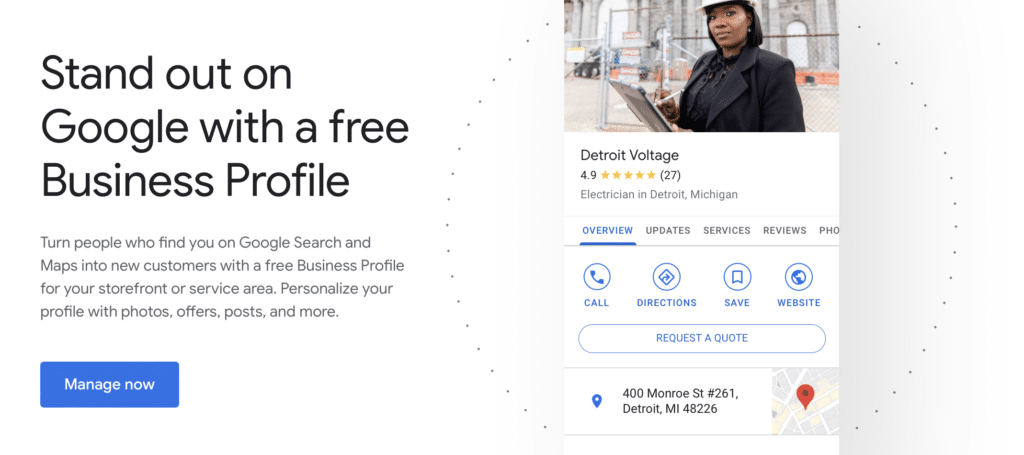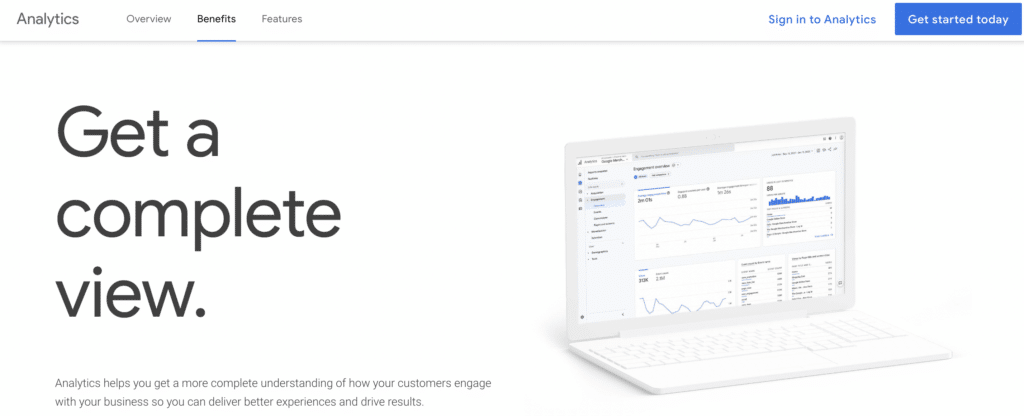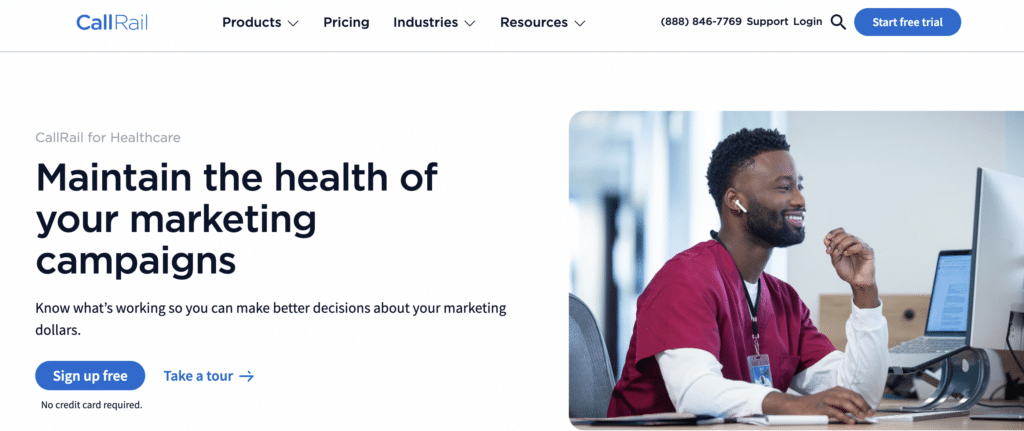Your Complete Guide to SEO for Doctors: Get More Patients With 10 Simple Steps

When you buy something through one of the links on our site, we may earn an affiliate commission.
Are you looking to drive more organic traffic and patients to a medical practice? I've got good news! There are many simple ways to boost search engine result rankings and get a solid return on investment. You just need to improve your SEO for doctors and the medical niche.
So, what should you do to grow businesses for and/or as a healthcare professional?
This is what I cover in this article because knowing what drives traffic is essential, whether you want to do it yourself or hire it out.
Below are all of the reasons why it's worth your time and money, as well as what you can do today to make a difference in your discoverability.
Contents
- 10 Best Ways to Implement SEO for Doctors
- 1. Understand the Patient Population & Your Specialty
- 2. Get to the Bottom of Keyword Research and Intent
- 3. Boost Local SEO with Location-Specific Keywords
- 4. Create More Engaging Content for a Blog Post (or Videos)
- 5. Building High-Quality Backlinks (Internal and External)
- 6. Optimize Your Website
- 7. Claim Your Google My Business Account
- 8. Get Listed on Directories
- 9. Ask for Patient Reviews
- 10. Build Your Following on Social Media Platforms
- How to Monitor Results with Medical Search Engine Optimization
- How Much Could SEO for Doctors Cost?
- Why Invest in SEO for Doctors?
- Final Thoughts on SEO for Doctors & Best Strategies
10 Best Ways to Implement SEO for Doctors
Search engine optimization isn't a one-and-done event.
It requires a consistent strategy that evolves over time. If you want to start showing up in the search results, here are ten strategies to point you in the right direction.
1. Understand the Patient Population & Your Specialty

Medical SEO is worthless if you don't know who you want to serve and how you want to serve them. To this end, you need to have a very clear idea of your ideal patient.
Know who they are, what they need from a medical practice, and where they hang out (which online platforms, etc). This can help you in later steps when building robust medical websites.
This is also the perfect time to be bold with your specialty.
Don't be afraid to advertise that you offer a very niche service if it sets you apart from the pack.
2. Get to the Bottom of Keyword Research and Intent

What are potential patients searching for when they look for a new doctor? There are two strategies you can employ here: one for general SEO and one for more local SEO (which we cover in the next section).
The first thing is to get a handle on what people are looking for when they might need a new doctor.
Here are some questions you might ask yourself when narrowing down keyword research:
- Are patients looking for a specific surgery or intervention?
- Do they want information on a procedure or action steps?
- Are they ready to book an appointment or consultation with you?
- Are they searching for a local doctor or a specialist they can travel to?
One of the keys to successful niche keyword research is understanding the intent behind the search. We have a complete guide on keyword intent here. However, it's important to know whether someone is looking purely for information on your services and when they are looking to make a transaction (or book an appointment).
You may also want to look for long-tail keywords, which are typically five or more words and have a greater degree of specificity.
3. Boost Local SEO with Location-Specific Keywords

Now, it's time to turn our attention to local SEO for doctors. The search engine rankings for your area will be heavily impacted by the keywords you use in your content marketing strategy.
Keyword research tools like Semrush are crucial for your overall SEO and can even help you better understand your local area.
For a simple example, you might want to be known as a "Dermatologist in Chicago" instead of just a more general keyword like "Dermatologist."
This can also apply to the towns surrounding the closest city where you practice. Find your relevant keywords that make it easy for new patients to find you. Don't forget to track your local SERPs!
4. Create More Engaging Content for a Blog Post (or Videos)

Medical websites can benefit from answering patients' most common questions on the page. Compile an extensive library of resources that could serve more patients and give them help when they need it most.
This helps establish the know, like, and trust factors essential to your long-term success in the industry.
A blog is often the easiest way to build up this content library, but many medical practices are now getting in with video content.
91 percent of marketers agree that video content is more relevant to their SEO efforts than ever before. You can join the trend with webinars, short TikTok videos, and a regular YouTube channel. Find out where your audience hangs out most and create content specifically for them.
5. Building High-Quality Backlinks (Internal and External)

Medical professionals can increase website traffic by getting their links on more reputable sites. These backlinks point from a third-party site back to your practice website, giving you a great advantage in search engine visibility. You can do this for free with a little effort focused on a high-quality backlinks strategy.
However, internal links can also be key to your website traffic. The longer someone spends time on your page, the more likely it is that Google will rank you higher.
Time on the page indicates that you can deliver what people are looking for.
In other words, keep them clicking from one page of your site to another. Always give them somewhere else they can go to learn more, contact you for an appointment, and get their questions answered by your warm and welcoming reception staff.
6. Optimize Your Website

Do people have complaints when they land on your medical website? Maybe it takes too long to load or isn't optimized for mobile users. Perhaps you don't have relevant metadata like the title tags, meta descriptions, or alt text on your images.
All the small things behind the scenes on your website can impact your results.
Use Google Search Console's Core Web Vitals report to determine if you can improve in these areas.
7. Claim Your Google My Business Account

This is a simple step but can have a profound impact on local SEO: claim your Google Business profile.
Google uses this profile to display your practice, phone number, address, and other contact information on their local maps.
If someone is searching for a doctor in a specific area (or "near me"), you want to appear on their radar.
It's free to claim your Google Business profile, takes just a few minutes of your time, and can have a great impact on your Google Maps ranking.
8. Get Listed on Directories

This is another way to secure more backlinks for your medical website: get listed on directories.
These can be listings on:
- Professional associations where you maintain membership,
- Your local chamber of commerce,
- And any other local site that might list businesses like yours.
Healthgrades is one example of a popular directory where you may want to start.
9. Ask for Patient Reviews

When did you last visit medical practices without a referral from another provider, friend, or family member? Reviews matter to most people, and the statistics are actually shocking: 90 percent of people trust online reviews as much as personal recommendations.
Even more important, positive reviews are important for local SEO rankings, according to Moz. This includes Google reviews. It also encompasses reviews left directly on your website and third-party review sites like Yelp and Healthgrades.
10. Build Your Following on Social Media Platforms

Finding keywords with an excellent search volume is just part of the puzzle. Your medical practice should also be on social media, especially with a Facebook business page. Prospective patients search for providers online, so connect with them where they hang out.
The important thing here is to be consistent in the image you present on both your website and social media. Leverage Facebook (or Instagram and TikTok) to share your content marketing strategy and give yourself a boost in healthcare SEO. You can also repurpose blog content and videos on social media.
How to Monitor Results with Medical Search Engine Optimization
Here are a few tools to help you keep tabs on the search results.
Google Analytics

Google Analytics is a staple item in any SEO marketer's toolbox. It's free to use and simple to install on your website, and it can be especially helpful if you run a blog on your medical website. (See our guide to Google Analytics for blogs here).
It tracks important engagement metrics like users, page views, and sessions, which can tell where people are finding you, how long they have been staying, and whether they will return later. This free tool is essential for monitoring your SEO efforts.
Call Tracker

How many people call into your medical practice after visiting your website? A call tracker like CallRail shows you how you turn that web traffic directly into booked appointments.
They are HIPAA-compliant and help you to lower the cost of patient acquisition.
Plus, you can get started with their services for very little monthly expenditure. Plans start at just $40 monthly for 250 minutes and five phone numbers.
Semrush

Semrush is more than just a keyword research tool; though, it can be helpful for that as well.
If you will try SEO for doctors on your own, it's recommended that you invest in some tools that will make your experience much smoother.
This tool is affordable at just $129.95 per month for one user, and it offers a robust suite of products:
- On-page SEO audit
- Competitor analysis
- Help with content marketing
- Rank tracking
- Social media management
- Market analysis
- And more!
Learn more about how this tool can help healthcare professionals in our detailed Semrush review.
How Much Could SEO for Doctors Cost?
Medical SEO for doctors may be a little more expensive than search engine optimization for other types of businesses. If you hire an agency, you might be looking at upwards of $1,000 per month, depending on what you want them to track, how much content you want them to produce, and the level of traffic you anticipate.
However, there is something to be said for a DIY approach as well. Roll up your sleeves and get involved for just a couple hundred per month (between CallRail and Semrush). The benefit is that you will have a greater understanding of what's working and how you can replicate and scale those efforts month after month.
Why Invest in SEO for Doctors?
If your medical practice has limited funds to acquire new patients, you may want to consider investing in search engine optimization to some degree. You can take a DIY approach using tools like the ones we'll cover later or hire an agency to take over.
Either way, it has some of the same benefits for your medical website.
Improve Traffic to Attract More Patients From the Competition

Medical practices need to convince people quickly that their doctors and professionals offer the highest standard of care.
SEO allows you to rank higher in the search engine results pages, which gives you 2 benefits:
You get more traffic, and you take more traffic from the competition.
Rank High for Your Specialty
New patients are not looking for generic doctors who will see anyone who comes through the door. It doesn't matter if you're a general primary care physician or the world's most renowned neurosurgeon.
A prospective patient is searching for specificity in their care provider. Rank high for your specialty and stay in mind when people search for you.
Set More Appointments

How do you know when you land on an effective SEO strategy? Pay attention to one important metric, and you will have your answer: how many more appointments are you setting up?
Medical websites can drive more people to your medical practice when you appear in search results.
Build Your Reputation
Potential patients will check the online reviews for your practice website before they ever pick up the phone and call to put an appointment on the books.
If you're diligent about collecting reviews (which can be an important ranking factor on Google search), you can create a solid reputation for yourself.
Final Thoughts on SEO for Doctors & Best Strategies
Are you ready to increase your website traffic and drive more patients to schedule an appointment with your medical practice?
Prospective patients will have a much easier time finding you when you start to adhere to some of these search engine algorithms and techniques.
Get started today to boost your spot in the SERPs!
Want to learn step-by-step how I built my Niche Site Empire up to a full-time income?
Yes! I Love to Learn
Learn How I Built My Niche Site Empire to a Full-time Income
- How to Pick the Right Keywords at the START, and avoid the losers
- How to Scale and Outsource 90% of the Work, Allowing Your Empire to GROW Without You
- How to Build a Site That Gets REAL TRAFFIC FROM GOOGLE (every. single. day.)
- Subscribe to the Niche Pursuits Newsletter delivered with value 3X per week
My top recommendations

















